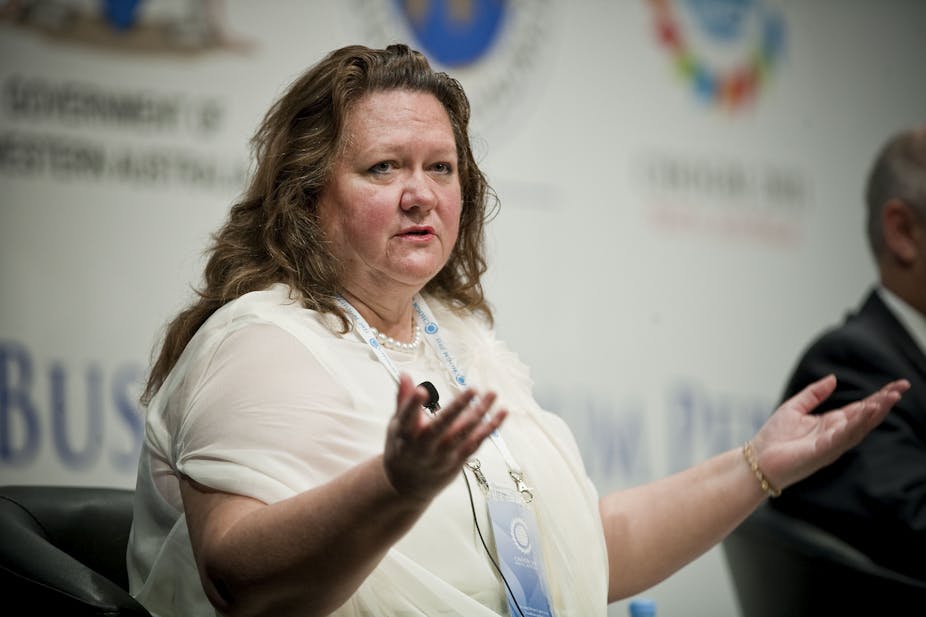In a landmark ruling, the Western Australian Supreme Court has dismissed an attempt from mining magnate Gina Rinehart to force a journalist to disclose his sources and materials.
Steve Pennells, a senior journalist with the West Australian newspaper, wrote a number of articles in 2012 describing the bitter feud between Gina Rinehart and some of her children over a family trust fund. One of Pennells’ sources was Rinehart’s estranged son, John Hancock.
In a submission to the court, Rinehart’s legal counsel claimed that the documents provided to Pennells by Hancock were of importance to a forthcoming arbitration regarding the trust. Rinehart wanted the court to issue a subpoena (court order) forcing Pennells and West Australian Newspapers (WAN) to disclose the documents.
The counsel for Pennells argued that disclosing the documents would identify sources other than Hancock that Pennells had received information from and granted anonymity.
This case, and the decision to set aside Rinehart’s subpoenas, is important for a number of reasons. It was the first proper test of a so-called “shield law” (typically a part of the various Evidence Acts) in Australia. Five of the country’s nine jurisdictions have enacted some level of protection of journalistic sources, while South Australia, the Northern Territory and Queensland are yet to join the majority.
However, until the Pennells case, it was unclear how the new laws would function, especially considering that it is up to the presiding judge in each individual case to decide whether the shield law should apply or not.
Justice Pritchard said in her judgement that:
…in my view the operation of the shield laws is a factor sufficient of itself to warrant the conclusion that the subpoena is oppressive and an abuse of process.
This is important because it indicates that the WA shield law carries enough weight to outrank other laws. Justice Pritchard applied a public interest test of sorts in determining which was of greater importance in this case: forcing the disclosure of information and sources for the administration of justice, or allowing the journalist to honour the confidentially agreement with his sources.
Justice Pritchard also delivered the first interpretation and future indication of how potent a source protection the shield laws might be:
In my view, the presumptive right to the protection in s20I [of the Shield Law WA] should not be departed from lightly, and only after a careful weighing up of the competing considerations.
If Justice Pritchard’s colleagues across Australia in the future interpret shield laws in a similar way, then that is good news indeed for journalists and sources and whistleblowers alike, and for the free flow of information in society. However, until we have seen a few more cases where shield laws are used, it’s hard to identify a trend.
Another trend is clear. Australian governments used to be the main litigants of journalists’ sources, yet in the last few years this seems to have shifted toward corporate actors such as Gina Rinehart. In February 2013, five journalists - including Steve Pennells - were under legal pressure to reveal their sources. Most of these cases have now been closed and ruled in favour of the journalists.
Fairfax journalist Adele Ferguson has also received a subpoena from Gina Rinehart, placing her in a similar situation to Steve Pennells. This judgment is still pending and it remains to be seen what impact the Pennells ruling has on this case. Rinehart owns a large stake in Fairfax and is therefore legally pursuing her own employee and journalist – certainly not a good look.
It’s hard to argue against the suggestion from the journalist union, the Media Entertainment and Arts Alliance (MEAA), that uniform shield laws across Australia are needed. The current situation with variations between jurisdictions is reminiscent of the bad old days of defamation “jurisdiction shopping’. This was addressed in 2006 when Australian defamation laws were made close to uniform.
A similar development for shield laws would benefit all parties, bar those that seek to limit the flow of information by intimidating journalists and their sources.

